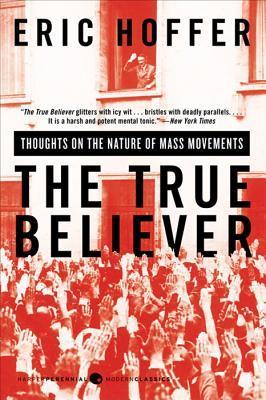More on this book
Community
Kindle Notes & Highlights
by
Eric Hoffer
Read between
March 29 - March 30, 2020
The quality of ideas seems to play a minor role in mass movement leadership. What counts is the arrogant gesture, the complete disregard of the opinion of others, the singlehanded defiance of the world.
People whose lives are barren and insecure seem to show a greater willingness to obey than people who are self-sufficient and self-confident. To the frustrated, freedom from responsibility is more attractive than freedom from restraint.
because of their immediate feeling that he is leading them away from their unwanted selves.
We usually strive to reveal in others the blemishes we hide in ourselves. Thus when the frustrated congregate in a mass movement, the air is heavy-laden with suspicion. There is prying and spying, tense watching and a tense awareness of being watched. The surprising thing is that this pathological mistrust within the ranks leads not to dissension but to strict conformity.
It is the sacred duty of the true believer to be suspicious. He must be constantly on the lookout for saboteurs, spies and traitors.
unification intensifies the propensity to hatred
the freedom the masses crave is not freedom of self-expression and self-realization, but freedom from the intolerable burden of an autonomous existence. They want freedom from “the fearful burden of free choice,”19 freedom from the arduous responsibility of realizing their ineffectual selves and shouldering the blame for the blemished product. They do not want freedom of conscience, but faith—blind, authoritarian faith. They sweep away the old order not to create a society of free and independent men, but to establish uniformity, individual anonymity and a new structure of perfect unity.
Hatred has become a habit.
no matter how noble the original purpose of a movement and however beneficent the end result, its active phase is bound to strike us as unpleasant if not evil. The fanatic who personifies this phase is usually an unattractive human type. He is ruthless, self-righteous, credulous, disputatious, petty and rude. He is often ready to sacrifice relatives and friends for his holy cause.
Milton, who in 1640 was a poet of great promise, with a draft of Paradise Lost in his pocket, spent twenty sterile years of pamphlet writing while he was up to his neck in the “sea of noises and hoarse disputes”5 which was the Puritan Revolution. With the Revolution dead and himself in disgrace, he produced Paradise Lost, Paradise Regained and Samson Agonistes.
Said Oliver Cromwell: “A man never goes so far as when he does not know whither he is going.”
Madame de Staël said of the Germans over a century ago cannot but realize what ideal material they are for an interminable mass movement: “The Germans,” she said, “are vigorously submissive. They employ philosophical reasonings to explain what is the least philosophic thing in the world, respect for force and the fear which transforms that respect into admiration.”12 One


